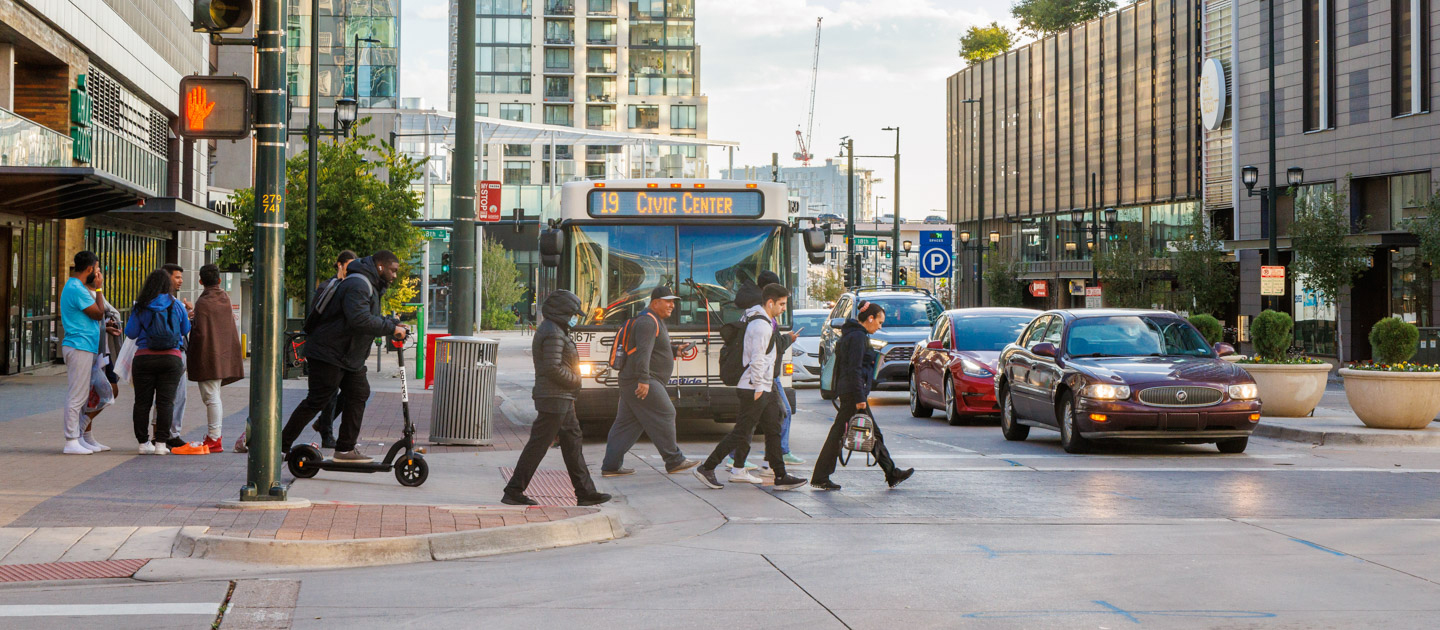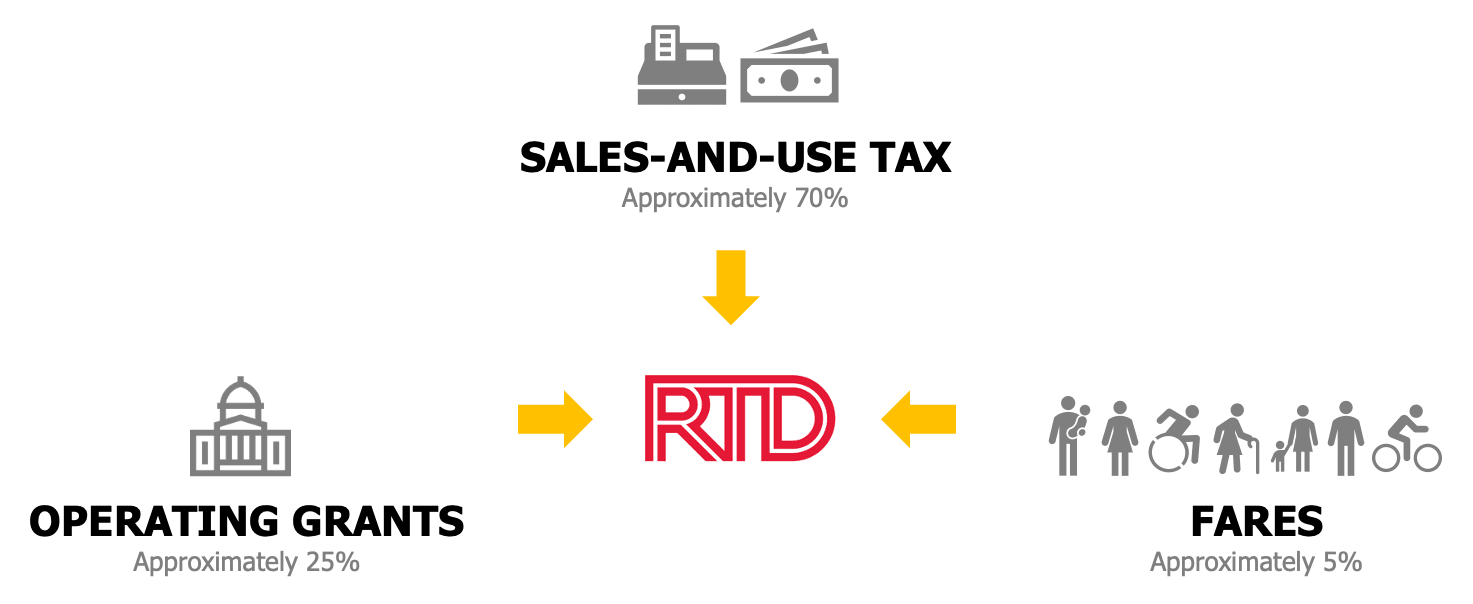
Financial Outlook
Our Community Value
The Regional Transportation District connects people to work, education, healthcare, and other life-changing opportunities across the Denver metro area. From individuals and families to businesses and non-profits, RTD’s buses and trains benefit all segments of the community. Our value is tied to providing the highest level of service possible and making lives better through connections.
Funding Profile
Despite financial challenges facing many U.S. transit agencies, RTD maintains a strong near-term outlook thanks to a recent focus on stabilizing its financial position and investing in priority initiatives.
RTD’s Current Financial Strategies
- Increase revenue and decrease expenses
- Maximize efficiencies
- Create a welcoming transit environment that retains existing and attracts new customers
- Advocate for new state funding that supports sustainable and accessible services
In 2024, RTD has three primary sources of revenue.

Sales-and-use taxes are a popular, widely used mechanism to support many transit agencies in the U.S. However, these taxes are volatile and, as RTD has experienced, subject to a number of external market factors, including inflation, recessions, and the availability of goods and services.
Learn more about RTD’s budget and finances here
TABOR Impact and Mitigation

In 1992, voters approved an amendment to the Colorado Constitution known as the Taxpayer’s Bill of Rights (TABOR). Voters exempted RTD in 1995 from TABOR’s limitations through December 31, 2005. In 1999, voters further exempted RTD from those limitations for the purpose of paying debt incurred to finance the construction of the Southeast and Southwest light rail lines or to operate such, for as long as any bond debt remains outstanding, but in no event beyond December 31, 2026. RTD’s bonds will be repaid in November 2024, and de-Brucing on the 0.6% sales-and-use tax will expire at that time.
In 2004, voters authorized an increase in RTD’s sales and use tax rate from 0.6% to 1%, effective January 1, 2005, to finance the FasTracks transit improvement program. When all FasTracks bond debt is repaid in 2050, the 0.4% sales-and-use tax rate may be reduced, and de-Brucing on the 0.4% will expire.
Approximately 50% or $600 million of RTD's revenues will be subject to TABOR in 2025. This includes virtually all revenue except the 0.4% tax, federal funding, and investment income from federal funding.
Revenue Diversification
While RTD currently maintains a strong financial position, the agency’s long-term outlook will require additional collaboration, support, and solutions to guarantee its future. To prepare for that future, RTD is investigating ways to move beyond its primary source of revenue.
Revenue diversification focuses on funding RTD through various means to ensure the agency is able to deliver transit services and maintain long-term stability.
The goal is to develop a diverse set of external subsidies to ensure RTD is not reliant on one primary source of revenue from a sales-and-use tax. This approach in diversification increases the probability that if one revenue stream declines, another is available to offset and take its place. RTD needs consistent and reliable funding sources to adequately provide public transportation to the Denver metro area.
Financial and Operational Data
RTD reports its financial and operational data to the Federal Transit Administration (FTA). The reported data is part of the National Transit Database (NTD), and it helps RTD and its stakeholders make multi-year comparisons, explore efficiencies, and perform trend analyses.
Opportunities and Challenges
Operating and maintaining a transit system for the benefit of more than 3.1 million people in a 2,342 square-mile service area is challenging and takes significant financial resources and investment. RTD is impacted by a backlog of deferred maintenance, a competitive labor market, supply chain issues, and high inflation. The agency’s aging rail network and operational facilities require extensive maintenance projects. Disruptive, societal issues brought on by individuals displaying anti-social behaviors are impacting RTD’s current employees and affecting the agency’s retention efforts.
Without New Dedicated Funding
If additional funding sources are not identified and secured in the future, RTD will face fiscal challenges that will certainly impact its service delivery. It goes without saying that RTD is focused on mitigating any adverse consequences, and the time is now to act. Preserving RTD’s strong financial position is paramount for the agency.
We Need Your Help
To build a stronger transit future in Colorado, RTD needs help. We call on the public at large to actively join us in supporting RTD’s mission of making lives better through connections. Over the last year, the agency has intensified its efforts to create a welcoming transit environment, with a focus on fostering a convenient and enjoyable experience for all employees and customers. We seek support in diversifying RTD’s financial foundations to guarantee a resilient future. We ask for understanding as we proactively address maintenance projects. And, of course, we invite customers to join us on board both now and in the future.